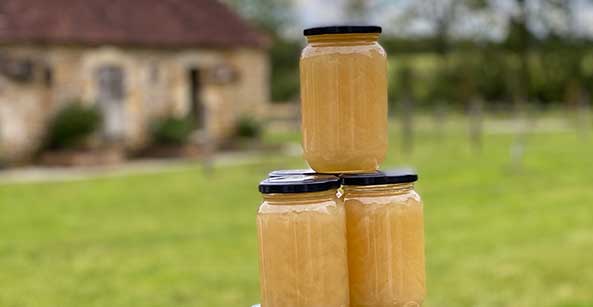
It is estimated that there are over a billion billion insects on Earth today, representing a biomass far greater than that of all land animals, including humans. We now know how essential insects are to life, especially pollinators, which contribute to the sexual reproduction of 80% of the world's flowering plants, including many food crops. What we don't know is the extraordinary and inspiring qualities that insects bring to their daily lives.
We have often praised the merits of ants, praised their intelligence on an individual scale (sense of orientation, perseverance in the face of obstacles) and on a collective scale (ability to anticipate events, starting with winter...). In the "social insects" category, bees also show incredible talents.
Thanks to the ethologist Karl von Frisch, we know that in order to communicate with each other, bees engage in elaborate specific "dances" (the interest being, for the explorers, to retranscribe to the rest of the colony the details of their fruitful peregrinations).
The aesthetics of the hives, with their perfectly hexagonal cells, show that they are also brilliant architects, capable of a regularity rare in the animal world; above all, they manage to optimize the available storage space while saving on construction materials.
Recently published research shows how bees manage construction challenges. Because not all terrain is suitable for building a perfect hive... which forces bees to constantly adapt. They are thus able to adjust the size, shape and even inclination of the cells, while preserving regular patterns and thus the harmony of the structure.
Even more fascinating is the ability of the bees to anticipate throughout the construction process. Spotting the difficulties in advance, they implement the necessary adjustments as they go along, to save themselves from a global redesign of too great a scale.
During its short life, the bee performs all kinds of tasks in and around the hive. Some are stereotyped (such as collecting food or cleaning the hive), meaning that a stimulus (visual, olfactory) is enough to trigger them. Others, on the contrary, imply that the bee must adapt its behavior to navigate in a constantly changing environment; this is notably the case when it leaves to gather food, sometimes several kilometers from home.
Recent studies show the extent of the cognitive capacities required by the bee during the collection of food, to be able to orient itself in space and memorize the species of flowers. Karl von Frisch (still him) was the first to define a methodology to decipher the so-called "floral constancy" behavior adopted by bees, i.e. their ability to retain the characteristics of flowers containing nectar.
Other studies show that bees also distinguish shapes, and in particular landscapes, despite their poor visual acuity. Like humans who function by categorization, it seems that they implement an elaborate cognitive processing of their visual environment. In particular, they would be able to detect the symmetry of objects, or to group them according to the relationship existing between them (such as "identical to", "in the same number as" or "above"). In other words, to be abstract.
We still have so much to learn from bees. However, like most insects, they are disappearing in dizzying proportions, with almost no one being concerned. In recent years, countless studies have warned of their decline, the reasons for which are well known: changes in land use, intensive agriculture, pesticides, the introduction of species, urbanization and, of course, pollution (especially light pollution).
Protecting them means protecting the essential tasks they perform every day... and giving us the opportunity to learn from their many talents.
Legal Notice - Privacy Policy - Terms and Conditions